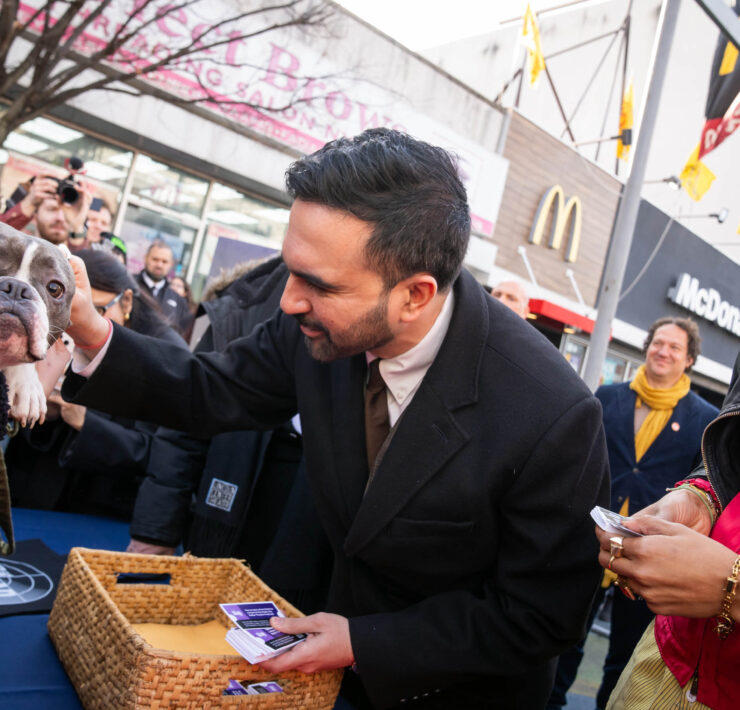PrideFest 2020: More Accessible, More Inclusive

The world is changing, and with it, our beloved Pride is, too. Pride is a remembrance of the six-day Stonewall riots that happened in June, 1969. The LGBTQ community has always been a community of survivors, having lived through the AIDS crisis and years of persecutions, and now, we are living through another virus.
Navigating COVID-19 during the technological age has allowed us to move our very own PrideFest here in Denver online this year, which has created a new way to approach the event mid-pandemic. Yet, this flexibility isn’t a new response for everyone in the community, especially disabled folks who have to navigate through difficult terrain on the daily.
Rosemary of the Atlantis Community Center said that some people within this community basically have the superpower to hack through difficult terrain, even more so than the average LGBTQ member, because they usually face more regular challenges and make their lives beautiful regardless. Pride is changing for the LGBTQ community, and this is another step forward for LGBTQ people to foster a more inclusive space.
OUT FRONT sat down with different community members to discuss their thoughts about how considering accessibility options helps an often forgotten community.
What are some of the difficulties that those within the LGBTQ community who are also disabled have to deal with when it comes to navigating Pride?
Rosemary: Well, a lot of people think about physical disabilities, like, I am in a wheelchair, and I have to think about all the grass that I have to go through. I don’t think that the people planning think about how the parade ends in the grass. There are also people with anxiety where it is harder to be outside. I am lower to the ground, and since everyone is outside, and a lot of people are drunk or hot, they aren’t paying attention. It’s a bit nerve-racking.
People with autism or sensory overload also can have issues. There’s also those who don’t have as easy accessibility to reach Pride in general. People with disabilities can use Access-A-Ride, but it is often expensive and not very spontaneous. It’s a smaller, more accessible bus that people with disabilities have that gives them the ability to go places, but you have to plan ahead by 24 hours, and it is often late.
Are there components of previous Pride events that have been more inclusive in the past?
Apollo (OUT FRONT intern): It’s always been fairly good, but there have always been problems with accessibility. The 21-plus area only had stairs to get in. I use a wheelchair mostly, sometimes crutches to get around. I love the community, and think there have been a lot of positive and cool people.
Rosemary: We’re already working on creating braille maps and accessible, online maps. Civic Center Park is already a bit [more] accessible; there are a lot of different places that weren’t able to change. This year, we wanted to add ASL interpreters; there had been main interpreters on the main stages, but many of the smaller stages hadn’t had them. Denver Pride has been working to get to be like the California Pride and be more accessible. More ideas we’ve had were to try and be more accessible for the sight-blind, having more ASL interpretation, and there were more things planned online.
How do you feel moving online this year will affect the community to come?
Apollo: I feel as though it will feel more disconnected, but it will be more accessible to more people with disabilities and have them be part of it, which will be a lot nicer than most people realize. I do think that it’s going to be a good idea because not everything is wheelchair-accessible or accessible for people with different disabilities. It would definitely have to be accessible for people who are hearing-impaired and be close-captioned, though.
Rosemary: It will definitely be different than what we’re used to. It will definitely take away from certain aspects, such as dancing and being surrounded by people, but it will still give an aspect of the community that people need. Having it online would eliminate a lot of barriers. Things online are going to give more opportunities to those who are in more rural areas, aren’t out to their family, who have personal attendants and aren’t able to have that physical autonomy. With this, they have had to be creative with the online component, but I hope that they include people with disabilities to help with the planning, because we have been thinking outside of the box for years to navigate through the world.
Joe Foster (The Center): In terms of virtual Pride, no one really knows what this looks like. We’re learning every day, and so we really haven’t gotten a lot of feedback from the community in terms of how to make it better, but the feedback we have received, we’ve definitely taken to heart and made sure that we’re doing the best we can.
Is there anything that you want to tell the community about?
Rosemary: The Atlantis Community was started by moving people out of nursing homes and into the community, and we’ve been going since 1974. Our goal is to move people with disabilities into the community with their own choices. We emphasize having autonomy and being able to choose where they want to participate. We don’t need anyone to have proof of disability. We have them self-disclose their disability, and then we help them. My favorite part of my work is that I am like a co-pilot; I don’t tell you what to do or how to do it. I just help you get to where you want to go.
Photo by Veronica L. Holyfield










